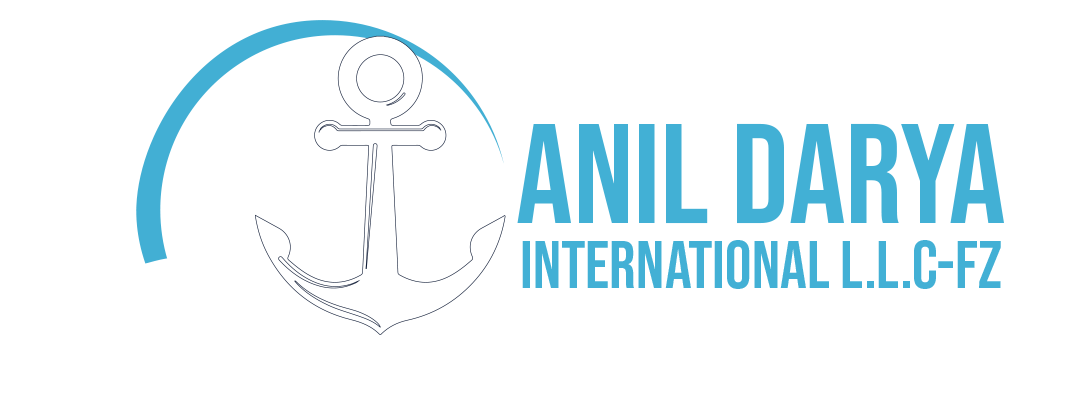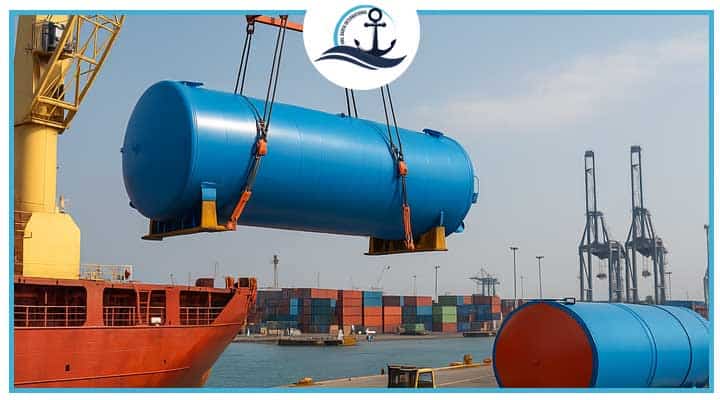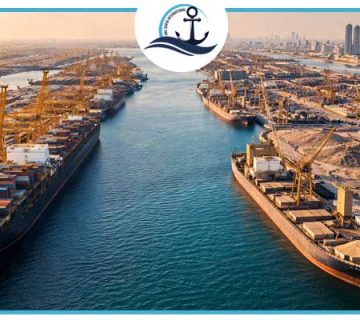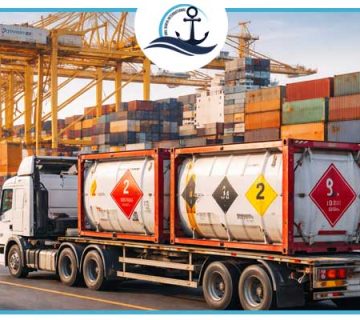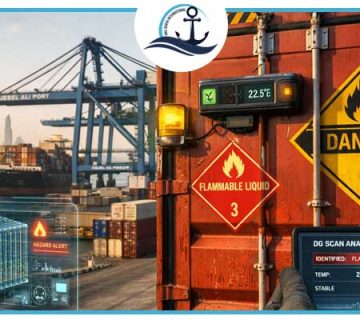|
Getting your Trinity Audio player ready...
|
Break Bulk Handling Best Practices for Ports in the UAE
Break bulk cargo handling remains one of the most specialized and challenging aspects of maritime logistics in the UAE port operations ecosystem. While containerization dominates global trade, industries that rely on heavy machinery, construction materials, steel products, and oversized goods still depend on break bulk handling Dubai services to ensure safe and efficient delivery.
The UAE — especially Jebel Ali Port, known as the region’s logistics powerhouse — plays a central role in facilitating Jebel Ali break bulk operations for both imports and exports. From project cargo for oil and gas industries to construction components for mega-infrastructure projects, Dubai’s ports manage thousands of tons of break bulk shipments every month.
But success in this field depends on one thing: best practices. Whether you’re a port operator, a freight forwarder, or a shipper, applying standardized procedures ensures safety, speed, and compliance — all of which are core values embraced by Anil Darya Shipping, one of Dubai’s most specialized freight forwarders.
Understanding Break Bulk Handling in the UAE
Unlike containerized cargo, break bulk shipments are loaded individually — either in crates, barrels, drums, or on pallets. Each item must be lifted, positioned, and secured manually or with specialized lifting equipment.
This complexity means that every UAE port — from Jebel Ali to Khalifa Port and Port Rashid — has implemented unique break bulk handling frameworks based on the type of cargo, port layout, and safety standards.
Efficient handling requires:
- Coordination between shipping agents, port operators, and customs.
- Certified lifting and securing gear.
- Skilled workforce trained in IMO and UAE regulations.
At Jebel Ali Port, cargo movement follows a strict sequence — pre-arrival declaration, cargo classification, on-dock inspection, and clearance. These steps reduce delays and minimize risk during loading or unloading.
For importers and exporters shipping from Dubai to Asia or Europe, selecting a partner experienced in break bulk operations ensures compliance and protection of high-value goods.
That’s where Anil Darya Shipping offers expertise — combining hands-on operational experience with modern logistics coordination to move break bulk efficiently through the UAE’s busiest ports.
Pre-Shipment Planning and Cargo Assessment
The foundation of every smooth break bulk handling Dubai operation lies in planning.
Before a vessel even arrives, a detailed assessment must identify:
- Cargo weight and dimensions.
- Type of lifting equipment required.
- Storage and staging areas.
- Packaging and labeling needs.
- Compliance with IMO and UAE Port Authority regulations.
A professional freight forwarder like Anil Darya Shipping conducts pre-shipment cargo assessments to classify, package, and label goods appropriately.
For certain industrial items — especially if they include hazardous materials or chemicals — a specialized DG (Dangerous Goods) declaration and IMDG documentation may be necessary.
🔗 How Dubai Is Becoming a Global Hub for Dangerous Goods Shipping
🔗 Customs Clearance for Dangerous Goods in UAE: A Step-by-Step Guide
On-Port Handling: Safety, Coordination & Equipment
At UAE ports, break bulk handling is all about precision. Equipment like gantry cranes, forklifts, and heavy-lift gear must be operated under trained supervision.
Every item must be secured according to its center of gravity to prevent damage or accidents.
The UAE port operations authority — particularly DP World at Jebel Ali — enforces strict inspection routines.
The best practices include:
- Using load distribution plans for heavy cargo.
- Implementing tagging systems for item identification.
- Maintaining clear communication between quay operators and vessel crews.
- Conducting real-time monitoring using digital platforms.
In recent years, Dubai’s logistics sector has also embraced digitalization and smart tracking, making break bulk movements more transparent and reducing human error.
🔗 Sea Freight Innovations at Jebel Ali: Reducing Delays & Improving Efficiency
🔗 Green Shipping Strategies in Dubai
Storage, Documentation & Customs Coordination
Once break bulk cargo is unloaded, it often requires temporary storage or repackaging.
The UAE’s port infrastructure offers custom-bonded warehouses, climate-controlled spaces, and heavy-lift storage yards to accommodate oversized cargo.
But documentation remains key.
Every Jebel Ali break bulk shipment must comply with UAE Customs regulations, including:
Bill of Lading
(B/L)
Certificate of
Origin
Packing
List
Import/Export Permits
MSDS and IMDG declarations
Anil Darya Shipping provides a complete documentation management service — ensuring every cargo type meets customs and safety requirements for quick release.
🔗 UAE Customs Clearance Procedures Explained
Coordination Between Sea, Air, and Land Freight
Although break bulk handling primarily involves sea freight, its success depends on seamless integration with land and air logistics.
After discharge at Jebel Ali, some cargo continues via road freight to Oman or Saudi Arabia, while others are airlifted for urgent deliveries to Asia or Africa.
By working with experienced partners like Anil Darya Shipping, shippers can design multi-modal logistics routes that optimize transit time and reduce costs.
🔗 Air Freight Trends in Dubai: Faster Delivery, Higher Costs, Environmental Impact
🔗 Optimizing Bulk Cargo Routes from Dubai to Asia and Europe
Sustainability and Innovation in Break Bulk Operations
Dubai’s ports are aligning their break bulk operations with green shipping standards.
New practices focus on:
- Using low-emission port equipment.
- Replacing diesel cranes with electric or hybrid models.
- Implementing smart load monitoring systems to reduce idle time.
- Promoting the Hong Kong Convention for environmentally responsible ship operations.
These sustainability efforts not only improve efficiency but also attract global partners who value eco-compliance.
Anil Darya International L.L.c-FZ actively supports these initiatives, integrating sustainability and digitalization into its logistics solutions — aligning with Dubai’s vision of becoming a low-carbon freight hub.
Why Choose Anil Darya Shipping for Break Bulk in Dubai
When handling break bulk cargo in Dubai, experience and precision are everything.
Anil Darya Shipping stands out for its:
- Expertise in heavy-lift and out-of-gauge cargo.
- Certified equipment and trained operators.
- End-to-end customs and documentation support.
- DG (Dangerous Goods) and IMO compliance management.
- Strategic partnerships across major UAE ports.
With operations centered at Jebel Ali, the company ensures reliability, transparency, and customer satisfaction.
Frequently Asked Questions (FAQ)
It refers to the manual or mechanical handling of non-containerized cargo like machinery, vehicles, or steel coils — loaded individually rather than in containers.
Jebel Ali Port is the leading hub, offering world-class infrastructure and specialized heavy-lift facilities.
The company provides complete handling — from pre-shipment assessment to on-port coordination, documentation, and customs clearance.
Yes, especially for oversized or dangerous goods. Proper permits and IMO compliance are mandatory.
Advanced equipment, experienced labor, and digitalized cargo tracking systems ensure high efficiency.
Yes, but they must follow IMDG labeling, UAE DG permits, and secure packaging standards.
Costs depend on cargo size, handling complexity, storage time, and type of vessel used.
By using eco-friendly cranes, optimizing vessel turnaround, and adopting digital tracking systems.
Typically 1–3 business days, depending on documentation accuracy and cargo type.
Because of its proven expertise, transparent pricing, and specialization in break bulk handling Dubai and UAE port operations.
